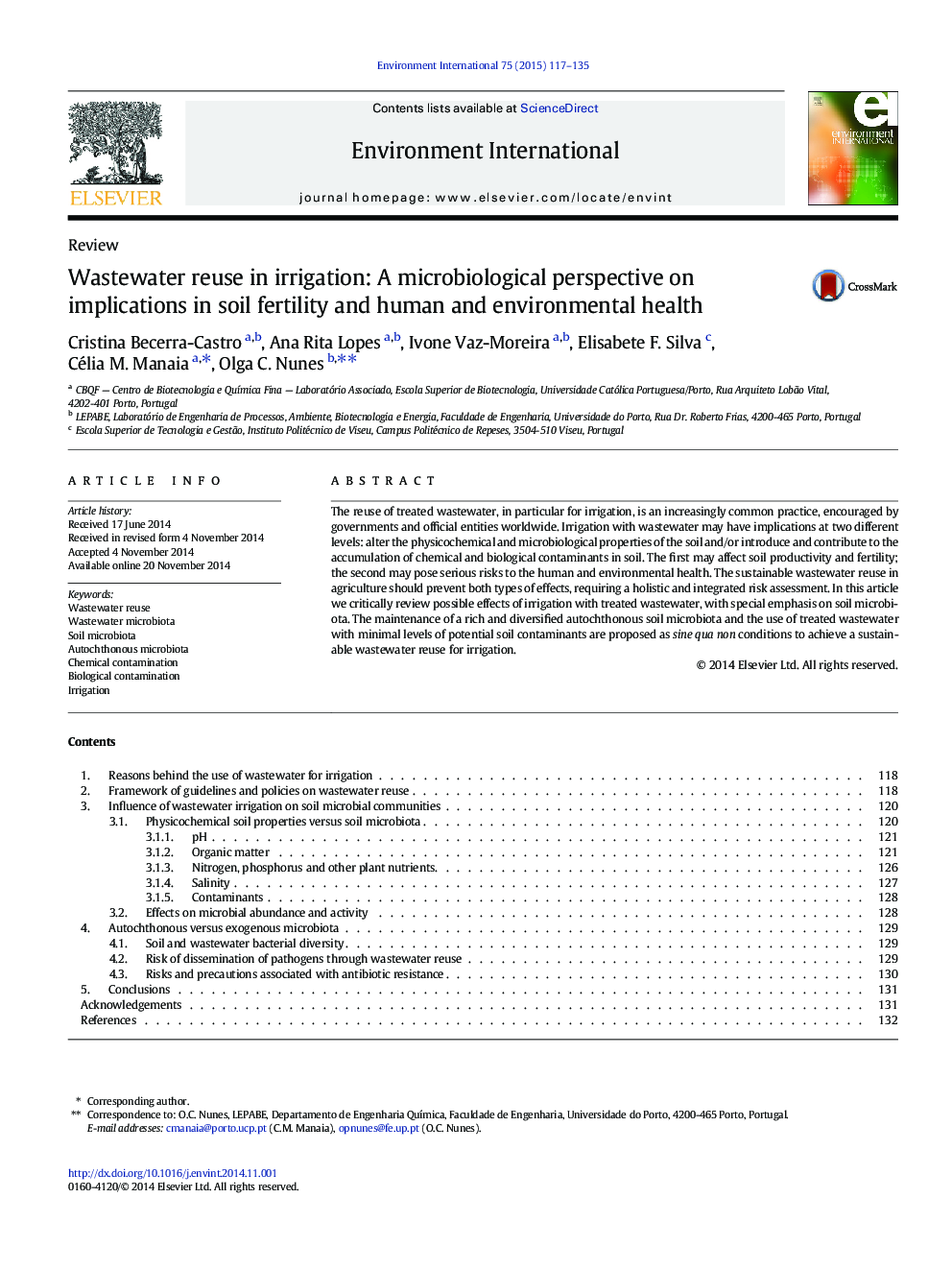| کد مقاله | کد نشریه | سال انتشار | مقاله انگلیسی | نسخه تمام متن |
|---|---|---|---|---|
| 4422700 | 1619053 | 2015 | 19 صفحه PDF | دانلود رایگان |
• Wastewater reuse may change physicochemical and microbiological soil properties.
• The wastewater–soil system complexity hinders direct cause–effect relationships.
• Wastewater reuse may contribute to a sustainable agriculture.
• Wastewater reuse poses risks of chemical and biological contamination of food chain.
• Holistic studies on the possible effects of wastewater reuse are needed.
The reuse of treated wastewater, in particular for irrigation, is an increasingly common practice, encouraged by governments and official entities worldwide. Irrigation with wastewater may have implications at two different levels: alter the physicochemical and microbiological properties of the soil and/or introduce and contribute to the accumulation of chemical and biological contaminants in soil. The first may affect soil productivity and fertility; the second may pose serious risks to the human and environmental health. The sustainable wastewater reuse in agriculture should prevent both types of effects, requiring a holistic and integrated risk assessment. In this article we critically review possible effects of irrigation with treated wastewater, with special emphasis on soil microbiota. The maintenance of a rich and diversified autochthonous soil microbiota and the use of treated wastewater with minimal levels of potential soil contaminants are proposed as sine qua non conditions to achieve a sustainable wastewater reuse for irrigation.
Figure optionsDownload as PowerPoint slide
Journal: Environment International - Volume 75, February 2015, Pages 117–135
